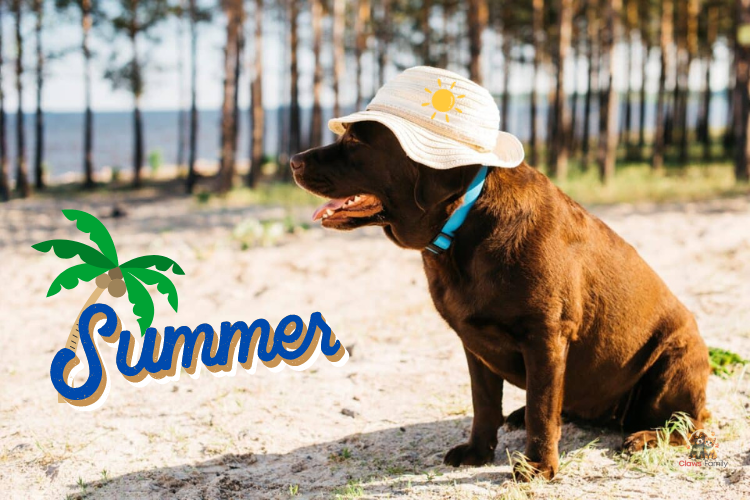Summer is a period when the dietary needs of a dog can significantly change. High temperatures affect not only our four-legged friends' behavior, but also their metabolism and appetite. It's essential, therefore, to pay particular attention to your dog's nutrition during the summer months, ensuring they receive a balanced diet that keeps them healthy and happy.
Hydration is important.
One of the fundamental aspects of a dog's summer nutrition is hydration. With the heat, dogs tend to lose more fluids through breathing and sweating (though pets primarily sweat through their paws). It is crucial to ensure they always have access to fresh and clean water. Always bring a bottle of water and a portable bowl on walks or outdoor activities to provide your dog with regular drinking opportunities.
Wet Food or Dry Food
In the summer, wet food can be a beneficial choice to keep your dog hydrated. Wet food contains a higher percentage of water compared to dry dog food, contributing to your dog’s hydration. However, it is important to balance the diet with dry food to ensure complete nutritional intake. Alternating between dry and wet food can be an effective strategy to ensure that your dog receives all the necessary nutrients.
Fresh and light foods.
During the summer, many dogs may lose their appetite due to the heat. In these cases, offering them fresh and light meals is beneficial. You can add vegetables like carrots, cucumbers, and zucchinis to a dog's diet to provide freshness and nutrients without making it heavy. You can also offer fruits like seedless apples, blueberries, and seedless, skinless watermelons as refreshing and healthy snacks.
Beware of toxic foods
It is important to remember that some foods commonly consumed by humans can be toxic to dogs. Avoid giving your dog chocolate, grapes, raisins, onions, garlic, and overly salty or sugary foods. Despite the summer's temptation to share ice cream or other sweets, it's crucial to resist and opt for safe, dog-specific alternatives.
Supplements and Vitamins
In some cases, it may be useful to supplement your dog's diet with specific vitamins and minerals to support their well-being during the summer. For instance, omega-3 supplements can promote healthy skin and coat, and vitamin E shields cells from sun-induced oxidative stress.
Weight Monitoring
The summer heat can affect a dog's level of physical activity, leading them to move less and thus consume fewer calories. It is important to monitor your dog's weight to prevent overweight or obesity issues. Adjust the amount of food according to your dog's level of activity and specific needs.
Feeding your dog during the summer requires some special precautions to ensure that your four-legged friend stays healthy, hydrated, and full of energy. Providing a balanced diet rich in water and nutrients, avoiding toxic foods, and monitoring weight are essential steps for taking care of your dog during this warm season. Remember to consult a veterinarian if you have any questions or want to customize your dog's diet to meet their specific needs. With the right precautions, summer will be a pleasant and peaceful period for both you and your loyal companion.


